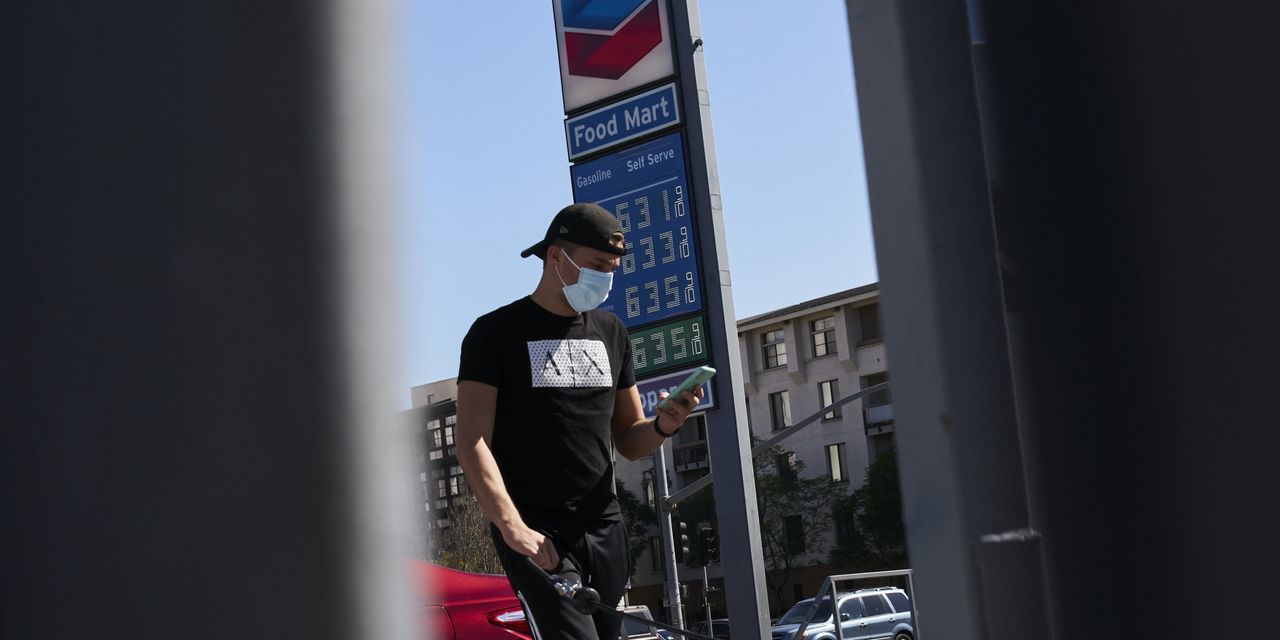

The aggressive sanctions against Russia left loopholes to allow payments for critical oil and gas supplies that fuel Europe—and the world’s—economies. But businesses are instead going beyond, slapping a toxic label on anything to do with Russia, shunning its oil, refusing to issue insurance and cutting off financial transactions even with entities not on the sanctions list.
The result is deeper financial pressure on Russia, potentially triggering bankruptcies in industries that can’t get access to cash or pay their bills. Other unintended consequences include higher prices for energy and crops like wheat, triggering greater inflation in the global economy.
Ask WSJ
What’s Next in Ukraine?
Journal reporters assess the situation in Ukraine, Putin’s next steps, and how effective sanctions have been.
“It’s amazing how quickly the spigot turns off in our world,” said Jerry Paulson, a senior vice president at Chicago insurance brokerage HUB International Ltd. “Everything is coming to a halt, and this is just one more thing that will negatively affect commerce with Russia.”
Western banks, wary of accidentally running afoul of sanctions or of doing business with a Russian bank that may be targeted next, have been hesitant to enter any deals and transactions, according to bankers, consultants and officials monitoring the sanctions. They are also taking cues from their own clients, who ceased business with Russia.
“Anything with Russia currently is going to be subject to delay, scrutiny, disruption,” said Justine Walker, head of sanctions and risk at the Associate of Certified Anti-Money Laundering Specialists, a consulting firm that works for big banks.
“Our risk appetite for new credit business in Russia and with Russian banks has been reduced to zero,” said an official at a German bank.
The main carve-out of the sanctions was Russia’s huge oil and gas exports. The move was meant to protect Europe, which is dependent on Russian energy, and global consumers already struggling with high energy prices. But oil topped $110 a barrel on Wednesday, which will further increase pump prices.
But companies don’t want to touch the Russian financial system, even to pay for oil which is allowed. That has driven up the price of crude from the rest of the world.
Photo:
Sergei Fadeichev/Zuma Press
“I have clients asking whether they should restructure their operations so they don’t have to deal with any Russian bank at all,” said Ori Lev, a partner in the law firm of Mayer Brown in Washington, D.C., and former official in the Treasury’s Office of Foreign Assets Control, which enforces sanctions.
“Their worry isn’t just how to respond to sanctions today. It is how to protect their business from any future sanctions,” said Mr. Lev, who serves clients like banks and insurers.
Global banks, having seen billions of dollars in penalties against
PLC,
PLC and
BNP Paribas SA
for violating sanctions, are wary of making a misstep. Some companies are also afraid of the reputational risk in doing business, even with nonsanctioned Russian entities.
Among those staying away are insurers, which have stopped issuing two types of insurance that are crucial for companies with operations or trading partners in Russia.
Political-risk insurance pays customers for losses caused by government actions including war, expropriation and forced sales of assets. The other major type of coverage that’s been cut is trade-credit insurance, which protects businesses when their trading partners don’t pay for goods and services.
The lack of trade-credit and political-risk insurance “will severely damage Russian cross-border trade with the rest of the world,” said Michel Léonard, who leads the economics and analytics department at the Insurance Information Institute, a trade group. He added that sanctions, a ruble collapse and illiquid bond markets “could lead to Russian carriers becoming insolvent.”
In recent days, nearly all of the roughly 60 carriers around the globe that sell the coverage stopped issuing policies for transactions involving Russian companies, said Nick Robson, global leader of credit specialty coverages at the insurance broker Marsh Inc., a unit of Marsh McLennan Cos.
Like sales of oil and gas, which have been crimped despite being exempt from sanctions, insurers appear to be going beyond what’s required. Insurers’ “conservative position on future sales may be more conservative than the sanctions for a period of time and that could have an impact on the delivery of goods and services in Russia beyond the impact of sanctions,” said Mr. Robson.
One concern is that even if companies have money, the sanctions will make it impossible for them to pay their bills. “The payment goes to a bank and that bank now can’t transact,” said Daniel de Búrca, a spokesperson for the International Credit Insurance & Surety Association, a trade body.

Photo:
David Paul Morris/Bloomberg News
Other insurance products have become prohibitive or not available at all. It is all but impossible to secure insurance to sail into Ukraine’s Black Sea ports, said an executive at a tanker company. To operate in Russia’s Black Sea ports such as Novorossiysk, insurers in the Lloyd’s of London market are charging a premium of up to 2% of the value of a newly built tanker, which equates to about $800,000, for 10 days of coverage, this person said.
The sanctions are a moving target, adding further uncertainty for businesses.
On Wednesday, the U.S. added financial pressure on Russia’s most powerful people. The Justice Department launched a new task force to hunt down and seize the luxury real estate, private jets, yachts and other assets of Russian oligarchs who help President
to stay in power. The task force was announced after a virtual meeting of members of the Group of Seven largest advanced economies.
U.S. officials warn they are prepared to escalate the sanctions in tandem with Russia’s attack on Ukraine. That includes threats to cut off more of the banking sector from the global financial system, blacklist more important state enterprises and additional export controls. They also said the carve-outs for energy might not be renewed after they expire in late June
Even if sales of energy are allowed to continue, history shows that carve-outs are complicated.
When the U.S. reimposed sanctions on Iran in 2018, European banks steered clear of any significant transactions with Iran even though their governments had kept sanctions suspended. Western firms were wary of being hit with multibillion-dollar fines by U.S. authorities for running afoul of U.S. sanctions law.
—Ian Talley, Joe Wallace and Sadie Gurman contributed to this article.
Write to Patricia Kowsmann at patricia.kowsmann@wsj.com, Julie Steinberg at julie.steinberg@wsj.com and Leslie Scism at leslie.scism@wsj.com
Copyright ©2022 Dow Jones & Company, Inc. All Rights Reserved. 87990cbe856818d5eddac44c7b1cdeb8
24World Media does not take any responsibility of the information you see on this page. The content this page contains is from independent third-party content provider. If you have any concerns regarding the content, please free to write us here: contact@24worldmedia.com

Common Mistakes When Using Athletic Field Tarps

High-Performance Diesel Truck Upgrades You Should Consider

Warehouse Optimization Tips To Improve Performance

Fire Hazards in Daily Life: The Most Common Ignition Sources

Yellowstone’s Wolves: A Debate Over Their Role in the Park’s Ecosystem

Earth Day 2024: A Look at 3 Places Adapting Quickly to Fight Climate Change

Millions of Girls in Africa Will Miss HPV Shots After Merck Production Problem

This Lava Tube in Saudi Arabia Has Been a Human Refuge for 7,000 Years

Four Wild Ways to Save the Koala (That Just Might Work)

National Academy Asks Court to Strip Sackler Name From Endowment

Ways Industrial Copper Helps Energy Production

The Ins and Out of Industrial Conveyor Belts